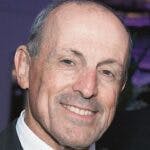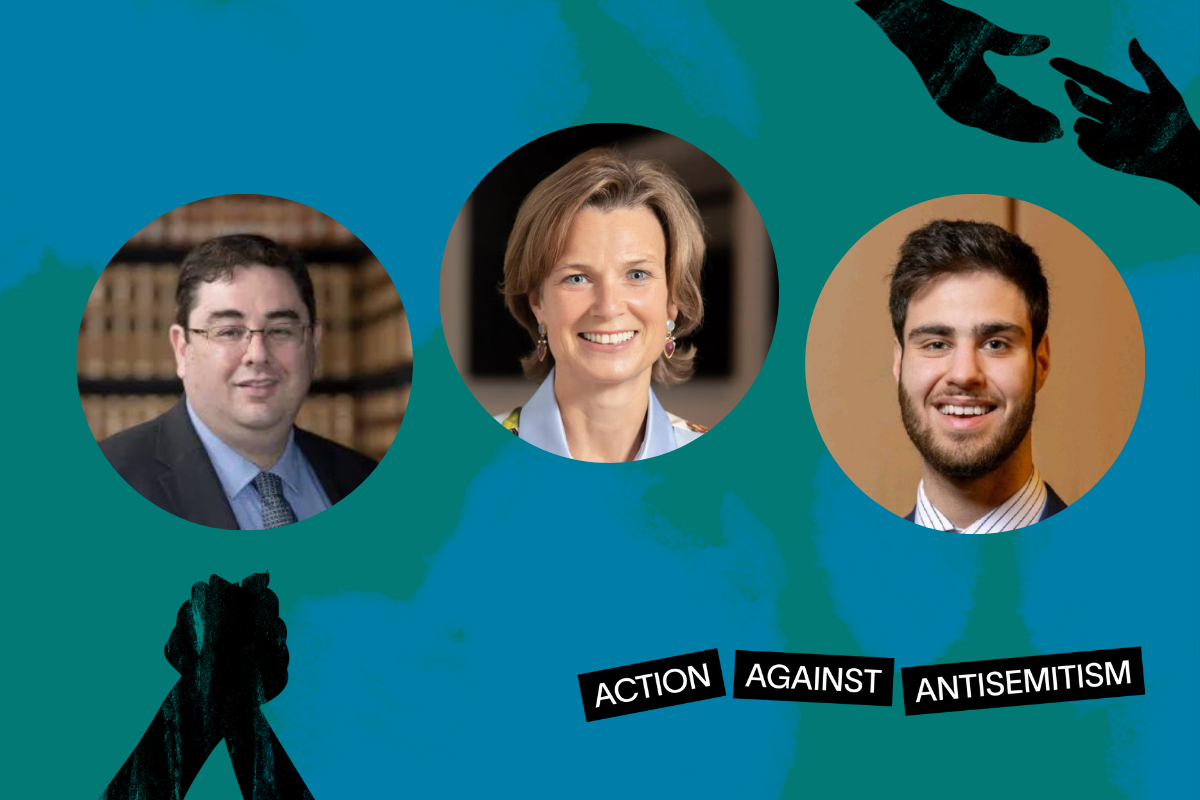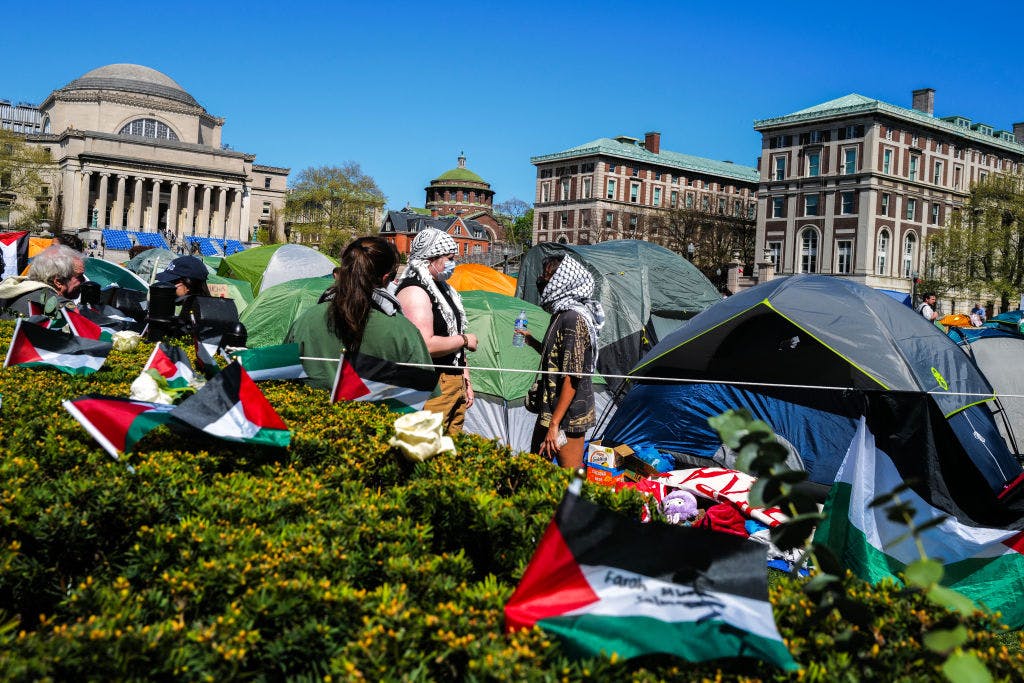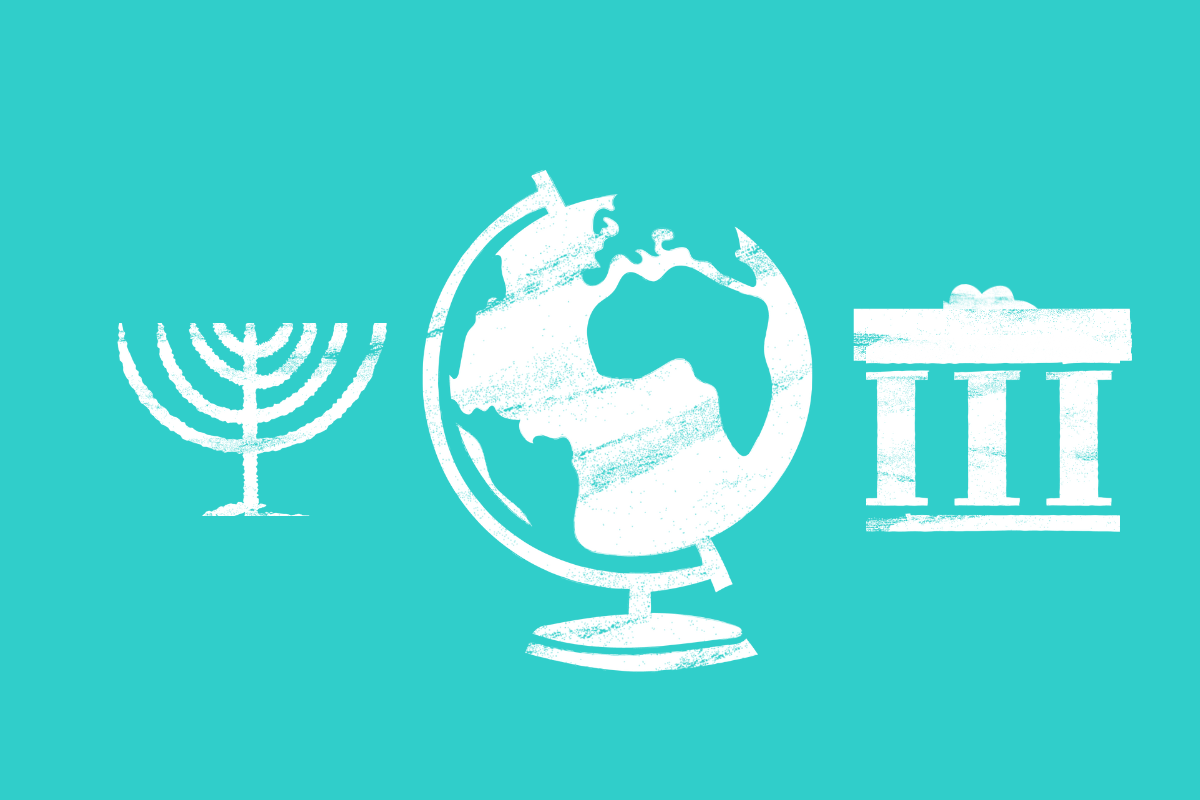Published: 14 April 2023
Last updated: 5 March 2024
Vic Alhadeff pays tribute to the man who led the prosecution of the leaders of the Nazis’ mobile killing squads and later helped establish the International Criminal Court.
There’s a small pantheon of 21st-century Jewish giants whose commitment to the fraught area of human rights expanded the frontiers of knowledge and compassion while plumbing the depths of how low humanity can go, leaving the world infinitely richer for their extraordinary contributions.
These towering figures include Sir Nicholas Winton, the British stockbroker and humanitarian who masterminded the rescue of 669 Jewish children from the Nazis, raising funds to underwrite the transports and finding British families to foster the young refugees. Remarkably, his endeavours remained unknown until 1988, when his wife Grete discovered a scrap book he had compiled, containing the names and photographs of the rescued children.
Also in this elite group would be Holocaust survivor Elie Wiesel, awarded the Nobel Peace Prize for defending “human rights and peace around the world”, and psychiatrist Viktor Frankl, whose book Man’s Search For Meaning – informed by three years in Auschwitz and Dachau - is acknowledged as a landmark exploration of the quest for meaning as a motivational force for humankind.
Then there is Benjamin Berell Ferencz, who died in his sleep last week at the age of 103 in Florida. (At the age of 100 he was doing 100 press-ups a day.) Diminutive in stature, he laconically said of himself: “I was very small. Five-foot-two at the height of my height. It kept me out of the (US) Air Force. I wanted to be a pilot. I couldn't reach the pedals. But by chance, I had a very good education.”
The self-deprecating reference was to his law degree from Harvard University.
Incredibly, at the age of 27 and despite having never prosecuted a single court case, Ferencz was appointed chief prosecutor at the Nuremberg war crimes trial in 1947. With his razor-sharp intellect and forensic approach, he prosecuted 22 leaders of the Einsatzgruppen (the Nazis’ mobile killing squads), which were responsible for the murder of over one million people, mostly Jews, predominantly through mass shootings. The unprecedented case was described by the Associated Press as "the biggest murder trial in history”.
While Ferencz had researched and identified about 3000 Nazis who could plausibly have stood trial for crimes against humanity, the courtroom could accommodate only 22. Careful not to put Nazis in the dock who could claim they had followed orders as their legal defence, he selected educated officers for the trial, determined to highlight their roles in the genocide.
The last living Nuremberg prosecutor said in his opening address to the court: “Vengeance is not our goal, nor do we seek merely a just retribution. We ask this court to affirm by international penal action man’s right to live in peace and dignity, regardless of his race or creed. The case we present is a plea of humanity to law.”
Vengeance is not our goal, nor do we seek merely a just retribution. We ask this court to affirm by international penal action man’s right to live in peace and dignity.
Ferencz's opening address at Nuremberg
Ferencz secured guilty verdicts for all 22, of whom 14 were sentenced to death and four were duly hanged. He visited one of the condemned officers, Otto Ohlendorf, in his cell before his execution. Ohlendorf, who admitted killing 90,000 people, had instructed his soldiers to save ammunition if a mother was holding a baby by shooting the baby, as one bullet would kill both.
“He was a father of five children and happily married,” Ferencz later recounted. “I said in German 'Can I do something for you?' I had in mind he was going to say, 'Tell my wife I love her, tell my children I'm sorry’. Not a word. He said, 'You'll see I was right’.”

Born in the Carpathian Mountains in Transylvania in 1920, Ferencz’s parents moved the family to a depressed area of New York when he was ten months old to escape growing antisemitism. After graduating from Harvard, he joined an anti-aircraft unit of the US Army and was posted to Europe at the height of World War ll.
He was subsequently appointed to lead a team of investigators into German war crimes and they uncovered troves of documents detailing the murder of hundreds of thousands at the hands of the Einsatzgruppen.

As part of his investigations, Ferencz accompanied US troops to concentration camps to view first-hand the carnage perpetrated by the Nazi machine. “Camps like Buchenwald, Mauthausen and Dachau are vividly imprinted in my mind’s eye,” he was quoted as saying. “Even today when I close my eyes, I witness a deadly vision I can never forget.”
Ferencz’s abiding legacy - apart from his remarkable tour de force at Nuremberg - was the ground-breaking establishment of a global system of justice in the form of the International Criminal Court, and the pursuit of justice, restitution and compensation for victims and survivors of the Holocaust. He was recently awarded the US Congressional Gold Medal but was unable to attend the ceremony due to deteriorating health.
“Law not war, that's my motto,” Ferencz noted with characteristic bluntness. “Simple. Three words. It causes me pain to see the world as it is. But not to do anything, not to try, that would be wrong … My hope is that people will not be content to look at the past and say ‘never again’ and then do nothing.
“I am taking the measures for preventing it from ever happening again. I don't think I'm an idealist. I'm a realist. And I see progress. The progress has been remarkable. People get discouraged. They should remember from me it takes courage not to be discouraged.”
Photo: Benjamin Ferencz at the Nuremberg war trials in 1947 (US Holocaust Museum/courtesy Benjamin Ferencz)




